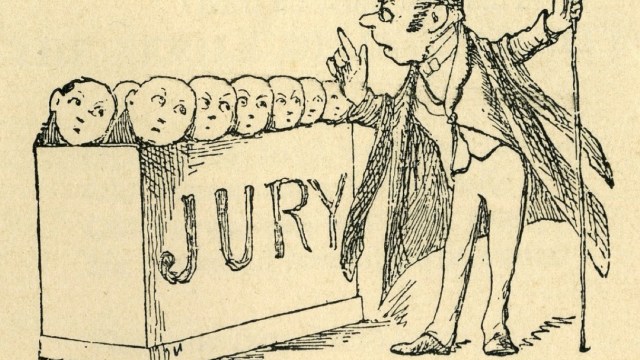Broadway Producer Hal Luftig: Nothing Compares to the Magic of Live Theater

In our current age of digital on-demand, with hours upon hours of entertainment available at our fingertips, is there still any incentive to go out and see a play or musical? Broadway producer Hal Luftig emphatically says “yes!”
Luftig, who’s won four Tonys and an Olivier award, explains why there’s no entertainment experience in the world quite like live theater:
“It’s live, you’re live, they’re live. They’re feeding off you, you’re feeding off them. And an audience senses that. And that is an added value. And I don’t really care how technology pushes us forward. There’s never going to be anything like sitting in a theater with a hundred or a thousand people around you laughing, crying, doing all those emotional things that hopefully good theater will do for you.”
His rationale is a very Aristotelian take on the nature of drama and live theatre. In The Poetics, Aristotle explained how observing an actor in a tragic play helps purge an audience’s emotional toxins. For Luftig and other theater lovers, the appeal of live performance hinges on experiencing the danger and excitement of the actor-audience connection in real time. It’s this exceptional quality, Luftig says, that will keep theater from fading away no matter how much technology takes over our lives.
His challenge, as well the challenge for the entire theatre industry, is to get people to realize what they’re missing. Luftig details how Broadway strives to make shows more accessible. He also emphasizes that there are ways to get tickets on the cheap. Accessibility and price are two major obstacles for potential audiences, but they’re not insurmountable. It’s Luftig’s job to make them less daunting.
One of the theater industry’s chief goals is to attract the attention of the younger generation. While Broadway gets away with entertaining mostly tourists, Off-Broadway and regional theaters around the country face a cloudy future as their ticket buyers and subscribers get on up there in age. Theatre professionals shiver in their boots at the thought of a future without the older generation of audience members. They need millennials to fill the seats becoming rapidly more vacant.
Luftig believes the key to fostering a life-long love of theater is to get kids started young. Those who don’t grow up with it tend not to appreciate or pursue it as adults:
“I have been a big advocate of getting school children into the theater. And whether that is a Wednesday matinee where you donate tickets… Some of the schools do it on merit, some do it on financial need, you know. Each school is a little bit different. But I find – and this is one of the greatest joys that I have as a producer – is watching those kids watch a show, many of them for the very first time. And you can tell which ones are hooked. You can tell because again, they’re sensing without any explanation they’re watching someone live.”
Although the younger generation is slower to adopt theater as a viable and accessible form of entertainment, Luftig is confident that he and his fellow producers will hook them soon enough. Sometimes all it takes is a hot show like Wicked or The Book of Mormon or even Luftig’s own Kinky Bootsto be the spark that ignites a life-long love for live performance.
Hear more about Broadway and live theater from Hal Luftig in the following clip from his recent Big Think interview:





